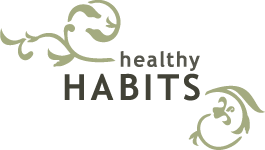North Americans love dairy. Cheese, cheese sauces, milk, yogurt, and ice cream are commonly found in the majority of food diaries that I see…and lots of it. Many people eat cheese 3 meals a day as a main source of protein (bagel and cheese, pizza, pasta and cheese). Others are drinking milk like water or relying on yogurt for breakfast and snacks.
Dairy can be a part of a healthy diet, but it has to be the right type and in the right balance. And for some the elimination of dairy from the diet may be best.
The majority of the world’s population loses its ability to properly digest dairy as an adult. Their bodies stop producing sufficient amounts of digestive enzymes. You’ve heard of lactose intolerance (see Bloated Again posted June 15, 2012), lactose is a sugar found in milk and needs the enzyme lactase to digest. One can also have problems digesting the proteins in dairy such as whey or casein. Once digestion becomes compromised dairy becomes inflammatory as undigested dairy feeds bad bacteria in the gut changing healthy gut flora. Bad bacteria in the gut harms the lining of the intestine making it easier for undigested dairy proteins and other foods to leak into the blood stream and trigger the immune system and systemic inflammation.
Inflammation from dairy can also occur because of the added antibiotics that fill up your bucket (see Inflammation – An Epidemic posted March 31, 2013). And beware of dairy from the U.S. that also contains synthetic growth hormones. And of course processed dairy like ice cream is inflammatory as it is full of chemicals as well as refined sugars.
Individuals who are allergic to yeasts and molds will likely get an inflammatory reaction when they eat moldy cheeses (Blue, Brie, Camembert and Gorgonzola).
But we love dairy! So what to do?
- Consult with a nutritionist to learn how to do a dairy elimination diet to learn if dairy is causing inflammation in your body. You may not have to eliminate dairy completely but you may discover that you can only have certain types of dairy in moderation.
- Always buy organic dairy to eliminate antibiotics and synthetic hormones (in U.S. products).
- The best dairy is full-fat yogurt or kefir made from real milk (not milk solids), the probiotics in these products make them easier to digest.
- The best cheese is whole milk cheese (not fat reduced). Harder varieties like old Cheddar, Parmigiano-Reggiano and Frugal are lower in lactose.
- Try dairy from goat or sheep as often goat or sheep dairy is easier to digest than cow.
- Do not drink milk like water. If you do have some milk have full-fat. If you can find non-homogenized milk that is even better as it is less processed.
- If you have to have a non-dairy milk substitute be aware that many have sugar added and no protein. Soy milk has protein but it is allergenic and best to avoid. I recommend unsweetened almond milk.
- Don’t be afraid of butter! Organic butter is a nutritious addition to your diet (see Stop Eating Dry Toast posted July 2, 2012) and is usually tolerated in moderation by individuals who can no longer digest other dairy products.
